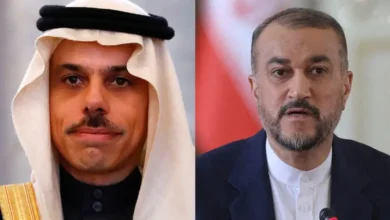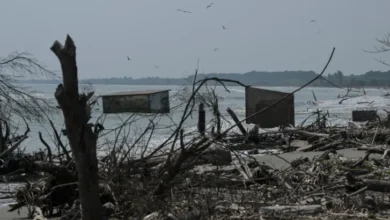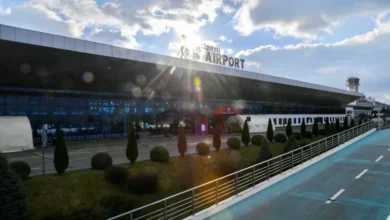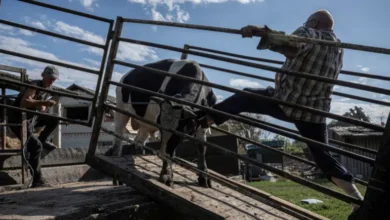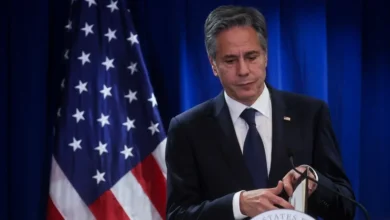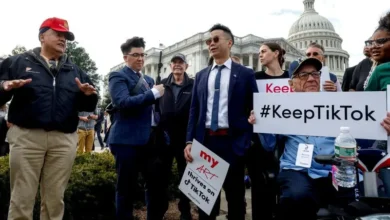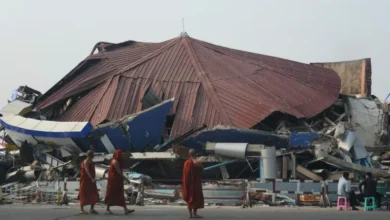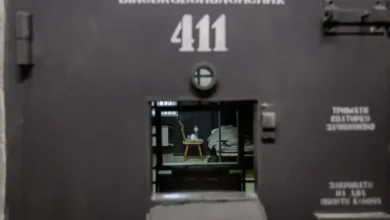Australia strips Chinese-made security cameras from defence sites
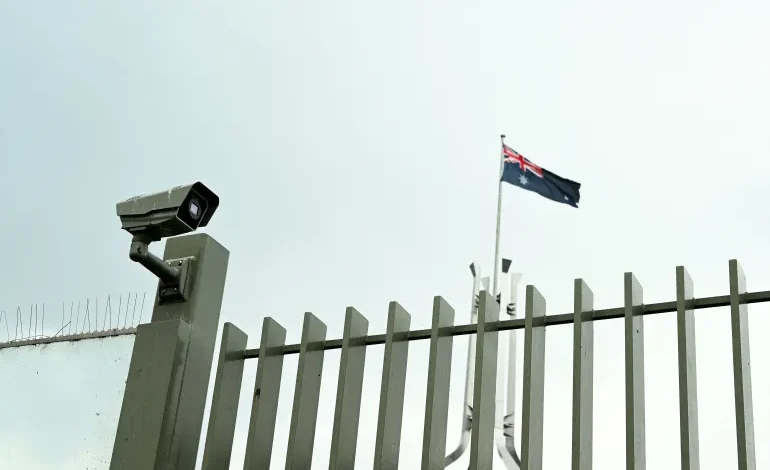
Australia’s Department of Defence will strip its buildings of Chinese-made security cameras to ensure they are “completely secure”, the government says.
The decision to remove the camera equipment follows similar decisions in the United States and the United Kingdom, which have also taken measures to ban Chinese-made cameras at sensitive sites fearing Chinese companies could be forced to share intelligence with Beijing’s security services.
“It’s a significant thing that’s been brought to our attention and we’re going to fix it,” Australian Defence Minister Richard Marles said of the decision on Thursday.
“It’s important that we go through this exercise and make sure that our facilities are completely secure,” Marles told national broadcaster ABC.
An audit found that at least 913 Chinese-made cameras had been installed across more than 250 Australian government buildings, including the departments of defence, foreign affairs, finance, and attorney general, according to official figures.
The cameras and security equipment made by Hangzhou Hikvision Digital Technology and Dahua Technology Co were found in almost every department except the Agriculture Department and the Department of the Prime Minister and Cabinet.Hikvision and Dahua, which are partly state-owned Chinese firms, have been blacklisted in the US for allegedly helping the Chinese government carry out a “campaign of repression” against the Uighur minority in the Xinjiang region through “high-technology surveillance”.
In the UK, a group of 67 parliamentarians and members of the House of Lords called for the government to ban Hikvision and Dahua in July last year, following reports their equipment had been used to track Uighurs.
Hikvision said it was “categorically false” to paint the company as “a threat to national security”.
“No respected technical institution or assessment has come to this conclusion,” the company told AFP news agency. “Our products are compliant with all applicable Australian laws and regulations and are subject to strict security requirements.”
The Chinese embassy in Australia did not immediately respond to a request for comment.
Prime Minister Anthony Albanese said he was not concerned about how China might react to the removal of cameras.
“We act in accordance with Australia’s national interest. We do so transparently and that’s what we will continue to do,” Albanese told reporters.
Australia, in 2018, was one of the first countries in the world to block Chinese telco Huawei from its 5G mobile network. Similar Huawei bans are now in place in the US, the UK and Canada, which along with New Zealand and Australia form the secretive Five Eyes spying alliance.
Opposition Liberal Party’s cybersecurity spokesman James Paterson said he had prompted the audit by asking questions over six months after the Department of Home Affairs was unable to say how many of the Chinese-made cameras, access control systems and intercoms, were installed in Australian government buildings.
“We urgently need a plan from the … government to rip every one of these devices out of Australian government departments and agencies,” Paterson said.
Both companies were subject to China’s National Intelligence Law which requires them to cooperate with Chinese intelligence agencies, he said.
“We would have no way of knowing if the sensitive information, images and audio collected by these devices are secretly being sent back to China against the interests of Australian citizens,” Paterson said.
